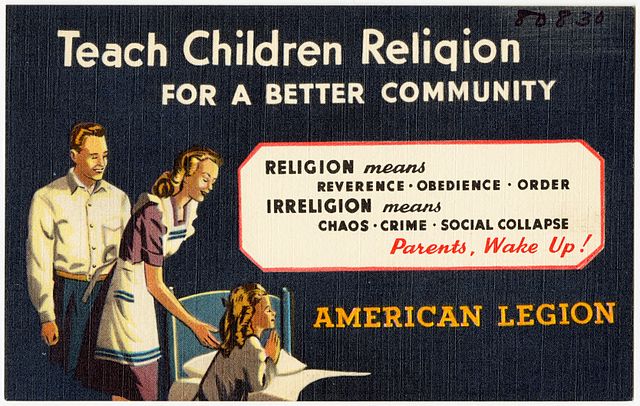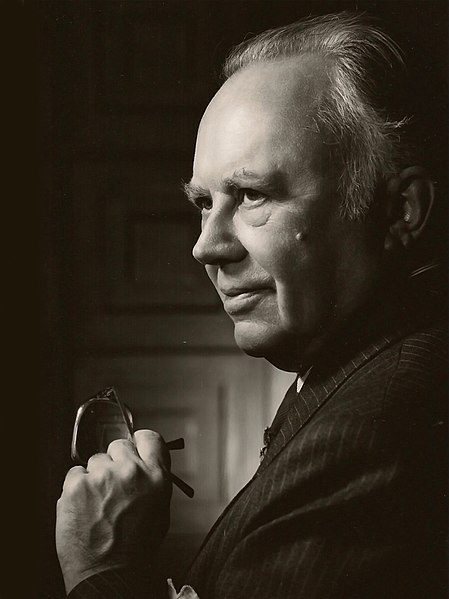Conservatism in the United States
Conservatism in the United States is based on a belief in limited government, individualism, traditionalism, republicanism, and limited federal governmental power in relation to U.S. states. It is one of two major political ideologies of the United States. Conservative and Christian media organizations and American conservative figures are influential, and American conservatism is a large and mainstream ideology in the Republican Party and nation. As of 2021, 36 percent of Americans consider themselves conservative, according to polling by Gallup, Inc.
William F. Buckley Jr., an author who founded National Review magazine in 1955
President Ronald Reagan holding a "Stop Communism in Central America" t-shirt on the South Lawn of the White House in March 1986
An American Legion postcard urging parents to teach religion to their children as a civic duty, c. 1930s
Russell Kirk, conservative theorist and author of The Conservative Mind, published in 1953
Political ideologies in the United States
American political ideologies conventionally align with the left–right political spectrum, with most Americans identifying as conservative, liberal, or moderate. Contemporary American conservatism includes social conservatism and fiscal conservatism. The former ideology developed as a response to communism and the civil rights movement, while the latter developed as a response to the New Deal. Contemporary American liberalism includes social liberalism and progressivism, developing during the Progressive Era and the Great Depression. Besides conservatism and liberalism, the United States has a notable libertarian movement, developing during the mid-20th century as a revival of classical liberalism. Historical political movements in the United States have been shaped by ideologies as varied as republicanism, populism, separatism, fascism, socialism, monarchism, and nationalism.
"Join, or Die" (1754). This political cartoon by Benjamin Franklin advocated unity of the Thirteen Colonies.
Depiction of William Jennings Bryan after giving the Cross of Gold speech in 1896 (William Robinson Leigh, 1900)
President Roosevelt signing the Social Security Act in 1935
Martin Luther King Jr. at the March on Washington for Jobs and Freedom in 1963








